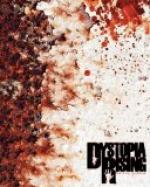|
This section contains 14,675 words (approx. 49 pages at 300 words per page) |

|
SOURCE: Huntington, John. “Utopian and Anti-Utopian Logic: H. G. Wells and His Successors.” Science Fiction Studies 9, no. 2 (July 1982): 122-46.
In the following essay, Huntington traces H. G. Wells's work within the dystopian genre, arguing that Wells had a profound influence on later dystopian authors such as Ray Bradbury, Aldous Huxley, George Orwell, and Yevgeny Zamyatin.
1.
It is generally recognized that Wells's work before 1900 is less prophetic and utopian than his later work. The ironic, comic stories and the great “scientific romances” constitute a body of literature that, while intensely interested in the possibilities of civilization and issues of domination, is for the most part skeptical of resolutions and solutions. After 1900, beginning with Anticipations (1901), Wells embarks on a more resolved course, predicting things to come and building utopias. Though this later mode may sacrifice some of the complexity of vision that is so valuable in the earlier mode, it...
|
This section contains 14,675 words (approx. 49 pages at 300 words per page) |

|


